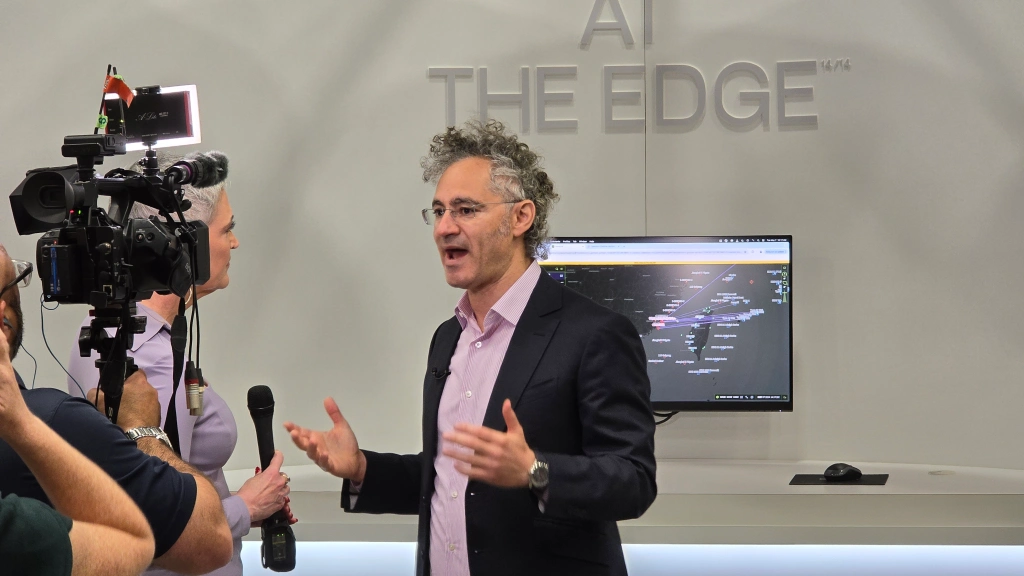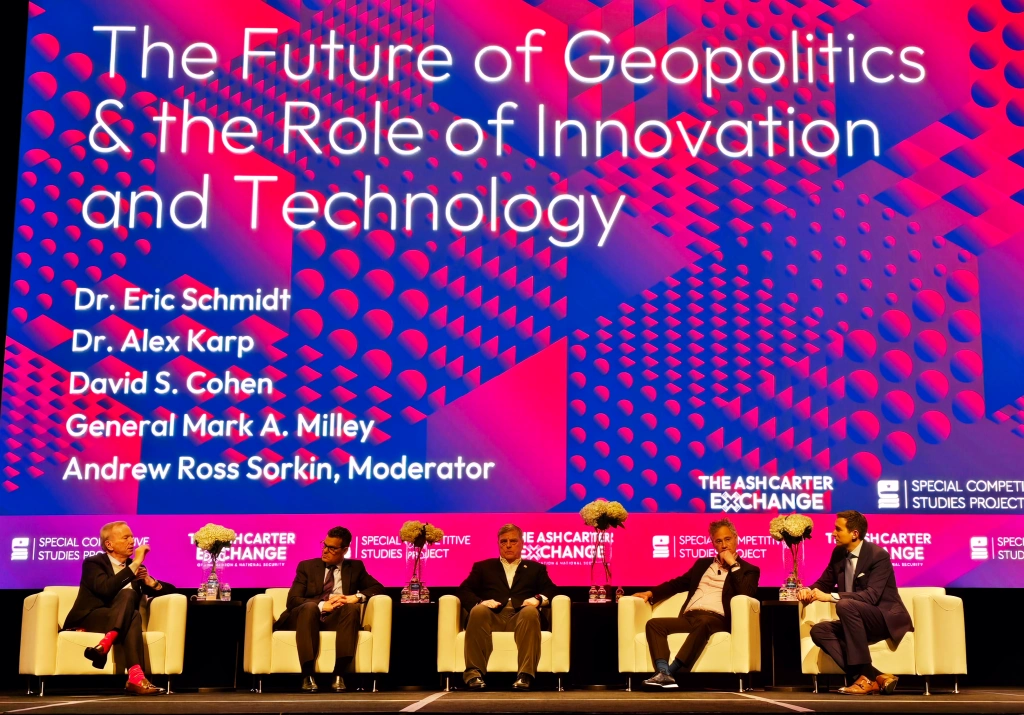Washington, D.C., Walter E. Washington Convention Center – In the whirlwind world of technology and geopolitics, the recent panel discussion on “The Future of Geopolitics and the Role of Innovation and Technology” offered a fascinating blend of perspectives from esteemed experts, including Alex Karp, Cofounder and CEO, Palantir; David S. Cohen, Deputy Director Central Intelligence Agency (CIA); Eric Schmidt, Chair Special Competitive Studies Project; Mark A. Milley, Former Chairman of the Joint Chief of Staff, and moderator Andrew Ross Sorkin, Anchor of Squawk Box CNBC. The session delved into how technology, especially artificial intelligence, is revolutionizing the battlefield and what this means for future conflicts and international power dynamics.
The talk kicked off with General Milley articulating a profound shift in the nature of warfare, largely driven by technological advancements. According to Milley, innovations such as AI and robotics are not just enhancing traditional combat tactics but are fundamentally altering them. Imagine a world where battles are fought with pilotless aircraft and crewless tanks, a scenario that might sound like a script from a sci-fi movie but is fast becoming a military reality.
From the shadows of the CIA, David S. Cohen shared insights into how the intelligence community is adapting to these changes. The integration of AI in espionage and intelligence gathering is pivotal, with Cohen emphasizing the need for the CIA to foster stronger ties with the tech sector to stay ahead of adversaries like China and Russia.
Eric Schmidt, always a visionary, highlighted the ongoing debate between open-source and closed-source technology models, especially in AI development. His commentary underscored the strategic implications of these technologies, questioning whether openness could inadvertently empower adversaries.

On the commercial side of things, Alex Karp, with his characteristic candor, discussed how platforms like those created by Palantir are enabling faster, more efficient iterations of technological tools, which are crucial for maintaining a competitive edge. Karp’s reflections also touched on a broader cultural shift in Silicon Valley, where the business community is increasingly recognizing the strategic importance of aligning with national security objectives, despite previous hesitations.
The session wasn’t just a technical rundown but also ventured into ethical territories. The speakers pondered the future of warfare in urban settings, which promises to be more destructive due to the dense populations. This grim outlook was balanced with discussions on the potential for technology to minimize collateral damage and enhance precision in military operations.
In terms of geopolitics, the panel agreed that dominance in technology equates to geopolitical power. This theme echoed throughout the discussion, with each speaker acknowledging that the race for technological superiority is not just about having the best gadgets but also about shaping global political dynamics and ensuring national security.
Despite the serious undertones, the panel had its moments of levity—General Milley playing with moderator Sorkin about CNBC and the reality of business news these days being a bit like dramatic storytelling. These lighter moments did not overshadow the critical message: the future of global conflict and peace increasingly hinges on our ability to navigate the complex intersection of technology and geopolitics.
This enlightening session made it clear that as we stride into the future, the lines between technology companies and defense agencies blur, transforming how wars are fought and, ultimately, how they are won. The stakes are high, and the need for innovative solutions has never been more urgent, making forums like this not just interesting, but essential for anyone keen on understanding the forces shaping our world.


Leave a Reply
You must be logged in to post a comment.